Program Information
The Living Thread :: There is a World Elsewhere
To find the path to life lived otherwise requires first the fulcrum of refusal or rejection––to turn one’s back on the corrupt or constraining familiar forces in order to set out for that liberating field of first permission, that world elsewhere. Art, writing, and dreaming have always been speculative technologies and practices for finding and forging possibilities of collective life beyond the heavy limits of our contemporaneity. Sometimes the other world is occult a cell of activists alloyed by the gnosis of secret knowledge, at other times the possibility for a new world is activated by and emerges through public assembly of mass street protest as Butler argues: “So when people amass on the street, one implication seems clear: they are still here, and still there; they persist; they assemble, and so manifest the understanding that their situation shared, or the beginning of such an understanding. And even when they are not speaking or do not present a set of negotiable demands, the call for justice is being enacted: the bodies assembled ‘say’ ‘we are not disposable,’ whether or not they are using words at the moment; what they say, as it were, is ‘we are still here, persisting, demanding greater justice, a release from precarity, a possibility of a livable life.”
How can art and writing lead us into new forms of collective life; how can art and writing catalyze or call these elsewhere possibilities into being: this questioning for a world elsewhere, and life lived otherwise will inflect our time together; and by coming together within these field of questions, we intend to extend a radical lineage of writers, artists, culture-makers for whom this search for a habitable future is part of the vocation of being. We’ll test the open question that writing always is through experiments with the line, the sentence, the song, and the bodies that articulate them all in lived social critique; we’ll listen and abide with one another in conversation and debate; we’ll respect the possibilities of wandering and errancy; always staying open to the happy accident of collective work, the shock of recognition in the new friend––for in each friend one finds an elsewhere world.
Week 1 Schedule
All events will be held in the Performing Arts Center on Naropa University’s Arapahoe Campus, unless otherwise noted.
The following schedule is subject to change.
Sunday, 6/8
5:30–7:30 PM :: SWP Orientation
Monday, 6/9
1:00–2:30 PM :: Opening Panel ::
Panelists: Anne Waldman (chair);
3:00–4:00 PM :: MFA Lecture ::
Tuesday, 6/10
1:00–2:30 PM :: Artist Talk ::
3:00–4:00 PM ::
7:00–9:30 PM :: Faculty Reading ::
Wednesday, 6/11
1:00–3:00 PM :: Dharma Arts :: Kyudo Four Direction Ceremony “Shiho Barai” :: Dai Kato
7:00–9:30 PM :: Faculty Reading
Thursday, 6/12
1:00–2:00 PM :: Artist Talk ::
2:30–3:30 PM ::
4:00–5:30 PM :: Student Panel
7:00–9:30 PM :: Faculty Reading ::
Friday, 6/13
1:00–2:30 PM :: Lecture ::
3:00–4:30 PM :: Colloquium ::
7:00–9:30 PM :: Student Reading ::
Saturday, 6/14
7:00–9:30 PM :: Faculty Reading ::
Workshop Faculty for Week 1
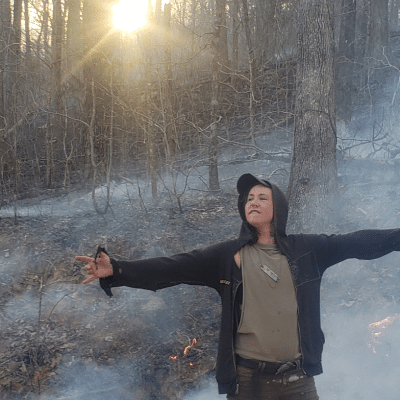
SKILLS AS LINEAGE, CRAFT AS TUNED ATTENTION, STUDYING AS SERVICE; :: Cody-Rose Clevidence
This will be a nuts-&-bolts, language as craft, honing-attention-to-the-material kind of workshop. We’ll cover prosody, try to tune our ears on sounds, study line breaks, look at associative leaps, look at the ways poems work as shining packets of thought, moments of sparking electricity, pulled somehow from the innermost parts and shaped into & through material, & passed out into the world & time. It is steady, simple work but it will be our communion with each other, & the world.
Cody-Rose Clevidence is the author of The Grimace of Eden Now (Fonograf, 2024) Aux Arc / Trypt Ich (Nightboat Books, 2021), Listen My Friend, This is the Dream I Dreamed Last Night (The Song Cave, 2021), Flung/Throne (Ahsahta, 2018), BEAST FEAST (Ahsahta Press, 2014) and some chapbooks. Occasionally a visiting poetry professor at the Iowa Writers’ Workshop, they live in the Arkansas Ozarks alongside four loyal, sentient animals.
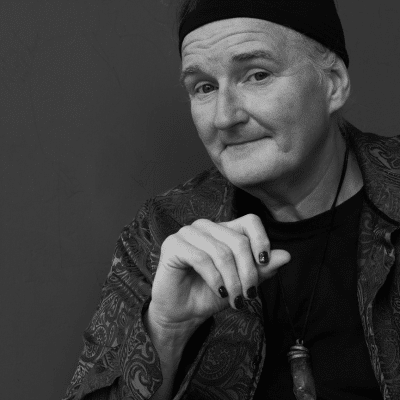
OCCULT POETICS :: CAConrad
“Poems should echo and re-echo against each other. They should create resonances. They cannot live alone any more than we can.” —Jack Spicer
We will discuss how poets’ occult and paranormal experiences and practices in the past show us how to trust that these same forces are alive and at work today. Rumi, Hannah Weiner, Will Alexander, Hoa Nguyen, Alice Notley, Ariana Reines, and Jack Spicer are some poets whose work and practices we will investigate.
CA will also discuss (Soma)tic Poetry Rituals as a practice for all writers and artists. These rituals provide a window into the creative viability of everything around us, initiating an “extreme present,” where we learn how, even in crisis, we can thrive through the poems and learn to collaborate in unexpected ways with other artistic disciplines.
CA will bring crystals charged for 72 hours at the foot of Emily Dickinson’s trees in Amherst, Massachusetts, one for each workshop participant. These massive, silent giants are the last living beings who knew her when she was alive! We will use the crystals in writing rituals such as haptics and flora transmission.
Former US-Poet Laureate Tracy K. Smith wrote in The New York Times, “CAConrad’s poems invite the reader to become an agent in a joint act of recovery, to step outside of passivity and propriety and to become susceptible to the illogical and the mysterious.”
CAConrad has worked with the ancient technologies of poetry and ritual since 1975. Their latest book is Listen to the Golden Boomerang Return (Wave Books / UK Penguin 2024). They received the Ruth Lilly Poetry Prize, a PEN Josephine Miles Award, a Creative Capital grant, a Pew Fellowship, and a Lambda Award. The Book of Frank is now available in 9 different languages, and they coedited SUPPLICATION: Selected Poems of John Wieners (Wave Books). They exhibit poems as art objects with recent solo shows in Tucson, Arizona, as well as in Spain and Portugal. They teach at the Sandberg Art Institute in Amsterdam. Please visit them at https://linktr.ee/CAConrad88
Photo credit: Wolf-Dirk Skiba
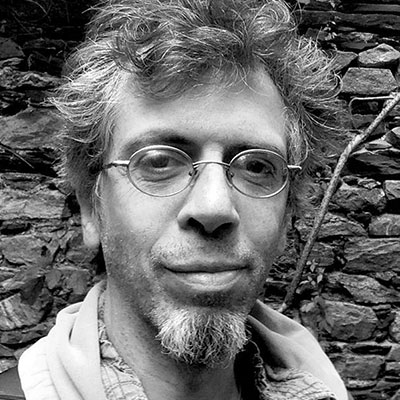
WRITING THE VOICE OF THE BODY :: Edwin Torres
Poets are creatures of awareness, receptive beings that embody transition. Part of allowing the creative process its chance to amaze, is to encourage that trigger into amazement. Structured as a creative laboratory, this workshop will enrich our natural tri-lingual bodies, our speaking-seeing-hearing body, by bringing our performance, movement and sensory capabilities into the writing process to replenish the languages inside us. We will generate work where the poem beckons freedom, from page, from body, where forms dictate transformative work — where the poem’s voice begins. The materials you would bring to an art class would fit here; rock, paper, scissors, lingo — the materials you would bring to a poetry class.
Edwin Torres is a NYC native whose books include; Quanundrum: i will be your many angled thing (Roof Books, awarded an American Book Award), Xoeteox: the infinite word object (Wave Books), Ameriscopia (U of Arizona), and editor of The Body In Language: An Anthology (Counterpath Press). His performances and collaborations with cultural nomads over the years have contributed to the development of his particular bodylingo poetics. Fellowships include; NYSCA, Foundation for Contemporary Arts, NYFA and Arts MidHudson. Anthologies include; New Weathers: Poetics from The Naropa Archives, The Difference Is Spreading: 50 Contemporary Poets on Fifty Poems, Poets In The 21st Century: Poetics of Social Engagement, and Aloud: Voices from The Nuyorican Poets Cafe. He is currently an adjunct poetry professor at Columbia University.
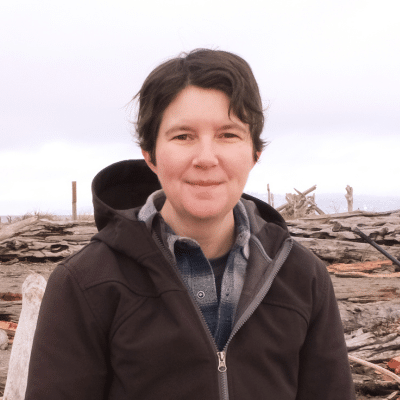
THE ART OF THE QUESTION THAT KEEPS ASKING :: HR Hegnauer
In this workshop, you’ll dive into an open-ended question like “What are the limits of the body?” or “Can art change reality?” or “Do you think most people are doing the best that they can?” The question is up to you! Through creative exercises, you’ll pose your question not only to yourself but also to classmates, peers, family, and even strangers—gathering diverse perspectives. Experimenting with constraints, forms, and approaches, you’ll refine your understanding and create a final piece that captures your journey of discovery. Your work can take any form that best suits your question, such as a poem, essay, video, or hybrid medium.
HR Hegnauer is the author of When the Bird is Not a Human (Subito Press) and Sir (Portable Press at Yo-Yo Labs). With an MFA in Writing & Poetics from Naropa, where she has also taught in the Summer Writing Program, and an MBA from the University of Denver, HR brings a unique blend of creative and professional expertise to her work. As the owner of a design studio, she collaborates with independent publishers, writers, and artists, specializing in projects that amplify unique voices. HR lives on Vashon Island with her wife and daughter.
Photo cred: Samantha Bounkeua
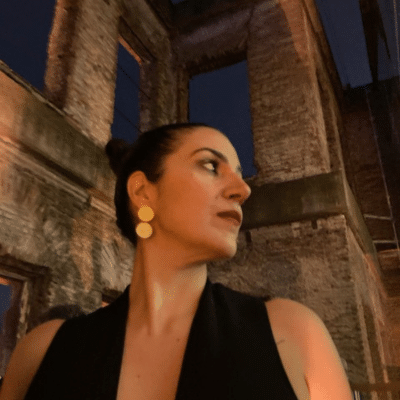
WRITING INTO/THROUGH/BEYOND THE PSYCHE :: poupeh missaghi
At a dark era where our external world is sinking deep into various forms of violence, a study of the internal world can shed light into the origins and possibilities of both human evil and human resistance. At this workshop, we will use various modes of entry into/through/beyond the human psyche to help us, as language workers and artists, to investigate and imagine, individually and collectively.
The workshop will be divided into theoretical-critical and generative-creative units.
poupeh missaghi is a writer, editor, translator (between English and Persian) and educator. Her books include Sound Museum (2024) and trans(re)lating house one (2020), both with Coffee House Press. Her translations include Boys of Love by Ghazi Rabihavi (University of Wisconsin Press, 2024), In the Streets of Tehran by Nila (Bonnier Books, 2023), and I’ll be Strong for You by Nasim Marashi (Astra House, 2021). She is currently an assistant professor of English and Literary Arts at the University of Denver, and a faculty mentor at the Low-Residency MFA in Creative Writing at the Pacific Northwest College of Art, Portland, OR.
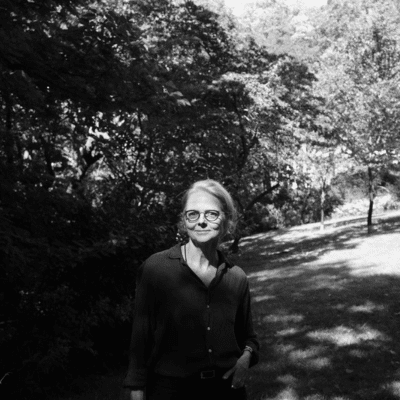
THE THREAD IN THE LABYRINTH :: Elizabeth Willis
Labyrinths have been used as sites of punishment and as locations for a range of liberatory, non-linear practices aligned with meditation, study, diversion, and play. With nothing but thread, Ariadne gave Theseus a way out of prison. What threads do we hold? What forms of coherence are available even in the presence of chaos?
In this workshop we will explore the work of various poets and thinkers (Kamau Brathwaite, George Oppen, and Roxanne Dunbar-Ortiz, among many others) while writing into and around our own questions and insights. What materials and strategies have poets used to sustain the imagination and bring its energy into the world? Acknowledging the complexities of our time and place, how can we learn from the failures as well as the wild acts of brilliance within poetic history? What would Ariadne’s thread look like now? In the company of other poets, we will consider our resources and look for passages through the architectures we inhabit. Bring thread.
Elizabeth Willis is the author of Liontaming in America (New Directions, 2024), a hybrid work engaged with American belief and relationship structures, theatre, activism, and film. Her other books of poetry include Alive (New York Review Books, 2015), a finalist for the Pulitzer Prize, as well as Address; Meteoric Flowers; Turneresque; The Human Abstract; and the artist’s book Spectral Evidence . She also writes about the intersection of art and labor and edited the volume Radical Vernacular: Lorine Niedecker and the Poetics of Place. She teaches at the Iowa Writers’ Workshop.
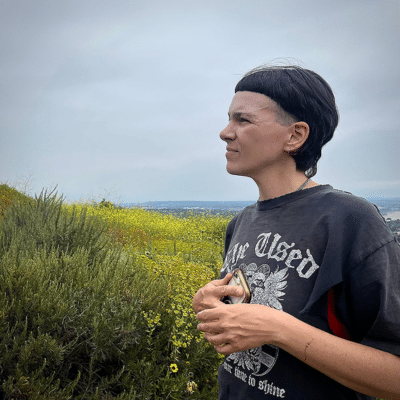
MFA Lecture :: Stella Corso
Stella Corso is the author of the poetry collections Green Knife and Tantrum, both from Rescue Press, along with several chapbooks, including, most recently, the people were lovely, but I was not. She holds a PhD from the University of Denver and an MFA from UMass-Amherst, and is a founding member of the Connecticut River Valley Poets’ Theater (CRVPT). Along with Leah Nieboer, she co-hosts the literary podcast The Ritter. She currently teaches in the Jack Kerouac School.
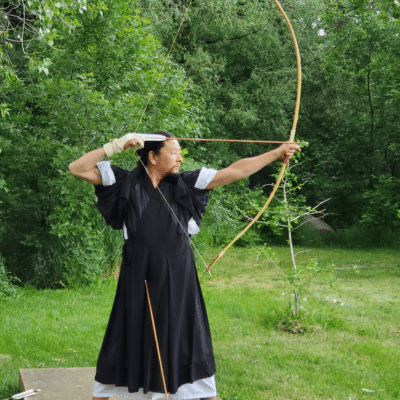
Dharma Art :: Dai Kato
Dai Kato, MA is a clinical mental health family therapist certified by the American Association of Marriage and Family Therapy and a founder of SMART therapy.
In past 20 years, he has been integrating Japanese Samurai Wisdom into Western Medicine to create Five Rings Whole Brain Reintegration Program. He is originally from a Japanese Samurai family in Nagoya and started his Zen meditation and martial arts practice at the age of seven.
He has been a Clinical Support Professional at Naropa University Graduate School of Counseling Psychology teaching Buddhist Psychology, Group Counseling, and Contemplative Counseling Skills.
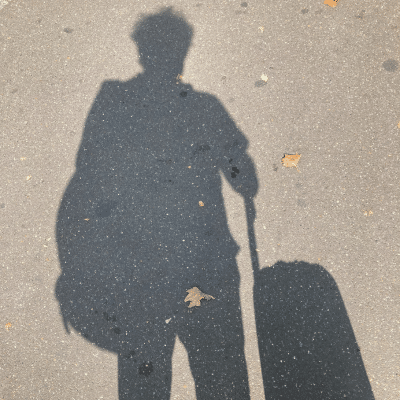
Special Guest :: Anselm Berrigan
Anselm Berrigan‘s latest book of poetry, Don’t Forget to Love Me, is forthcoming in September 2024 from Wave Books. Other books include Pregrets, (Black Square Editions, 2021), Something for Everybody, (Wave Books, 2018), Come In Alone (Wave Books, May 2016), Primitive State (Edge, 2015), Notes from Irrelevance (Wave Books, 2011), Free Cell (City Lights Books, 2009), Some Notes on My Programming (Edge, 2006), Zero Star Hotel (Edge, 2002), and Integrity and Dramatic Life (Edge, 1999). He is also the editor of What is Poetry? (Just Kidding, I Know You Know): Interviews from the Poetry Project Newsletter (1983–2009) and co-author of two collaborative books: Loading, with visual artist Jonathan Allen (Brooklyn Arts Press, 2013), and Skasers, with poet John Coletti (Flowers & Cream, 2012). He was the poetry editor for The Brooklyn Rail from 2008 through 2023. With Alice Notley and Edmund Berrigan he co-edited The Collected Poems of Ted Berrigan (U. California, 2005) and the Selected Poems of Ted Berrigan (U. California, 2011). More recently, he co-edited Get The Money! Collected Prose of Ted Berrigan (City Lights, 2022) with Notley, Edmund Berrigan, and Nick Sturm. A member of the subpress publishing collective, he has published books by Hoa Nguyen, Steve Carey, Adam DeGraff, and Brendan Lorber. From 2003-2007 he was Artistic Director of The Poetry Project at St. Mark’s Church, where he also hosted the Wednesday Night Reading Series for four years. He teaches writing classes at Pratt Institute and Brooklyn College, and was a longtime Co-Chair in Writing at the Milton Avery Graduate School of the Arts interdisciplinary MFA program. Berrigan was granted an Individual Artists Award from the Foundation of Contemporary Arts in 2017, and was also awarded a 2015 Process Space Residency by the Lower Manhattan Cultural Council, and a Robert Rauschenberg Residency by the Robert Rauschenberg Foundation in 2014. He was a New York State Foundation for the Arts fellow in Poetry for 2007, and has received three grants from the Fund for Poetry.
(photo credit: Michael Grimaldi)
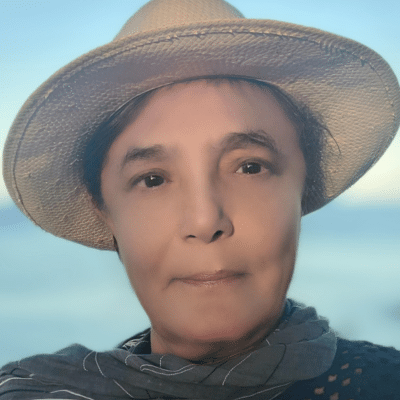
Special Guest :: Safaa Fathy
Safaa Fathy was born in Egypt. She is a poet, essay writer, and filmmaker. She is the author of Al Haschische (Pamenar Press, 2023), an experimental book of poems. Her plays Terror and Ordeal (Lansman, 2004) were prefaced by Jacques Derrida, with whom she signed the book Tourner les mots (partly translated into English by Max Cavitch, University of Pennsylvania). Her book of poetry, Revolution Goes Through Walls (SplitLevel Texts), was first published in Egypt, then in France and Brazil. She also experiments with the visual texture of poems in filmic forms. She participated in the 47th Annual Poetry Project Marathon with a short piece entitled “I Would Like to Say.” Safaa Fathy’s Name to the Sea, a film-poem structured within a still frame, is being published along with the text in seven languages (Vanilla planifolia, Mexico City). She has been writing a novel in English for the past five years.
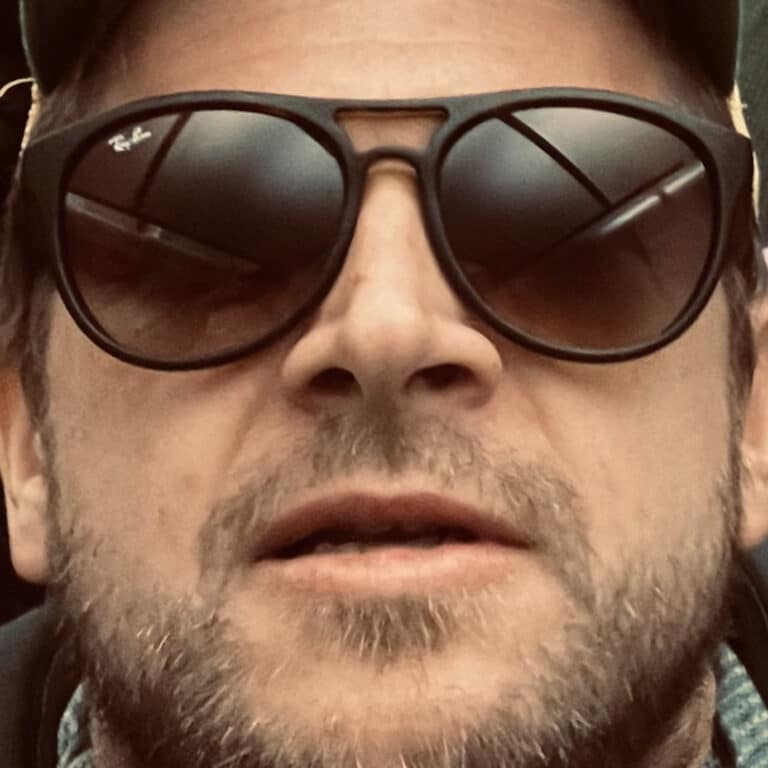
Harry Smith Recording Studio :: Ambrose Bye
Summer Writing Program participants (in select workshops each week) may have the opportunity to work in Naropa University’s Recording Studio. Sometimes the projects entail setting their work to music, or recording spoken word poetry, or recording their own poetic songs; oftentimes the recording studio projects are group collaborations, collective sound installations, and other experiments withthe phonotext. Over the year Fast Speaking Music has produced several audio anthologies of student and guest faculty’s recorded work; the Harry’s House cd compilations; here is the link to Volume III: https://spoti.fi/3v19mQP
Ambrose Bye is a musician, engineer, and producer living in Mexico City, and is the co-founder of Fast Speaking Music with Anne Waldman. He has produced over 20 albums and frequently collaborates with poets. Recent productions include “Among the Poetry Stricken” (Clark Coolidge and Thurston Moore) and “Artificial Happiness Button” (Heroes are Gang Leaders). He has worked and performed at Masnaa and the Ecole de la Literature in Casablanca, Le Maison de Poesie in Paris, the fieEstival Maelstrom in Brussels, the Henry Miller Library in Big Sur, Pathway to Paris at Montreal POP 2015, and Casa Del Lago in Mexico City. He has also been involved in the recording studio and workshops at the Summer Writing Program at Naropa University since 2009.
Fast Speaking Music

